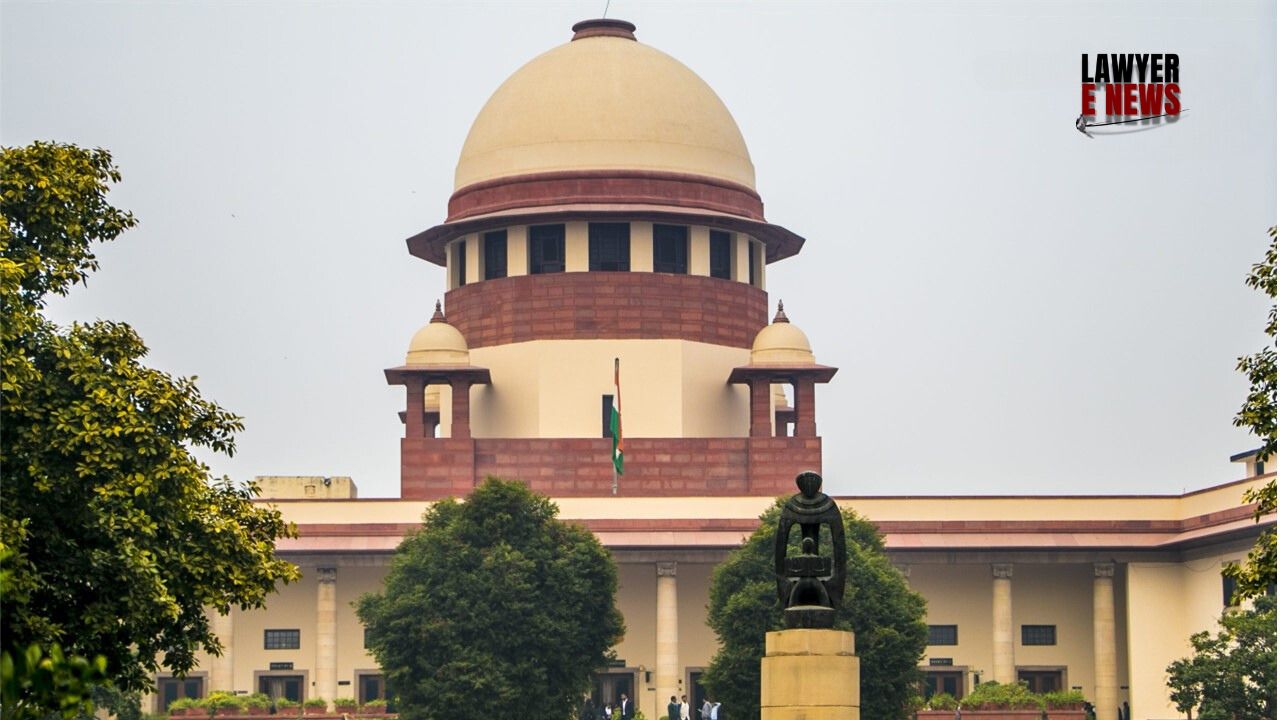-
by Admin
15 February 2026 2:36 AM



Supreme Court of India dismissed the appeals filed by the appellants challenging the classification of their lands as surplus under the Maharashtra Agricultural Lands (Ceiling on Holdings) Act, 1961 (“Ceiling Act”). Upholding the findings of the Revenue Tribunal and the Bombay High Court, the Supreme Court reiterated that transfers of agricultural land made by the appellants between 1959 and 1962 were rightly presumed to defeat the objectives of the Ceiling Act.
The appellants contended that certain land transfers were incorrectly classified as surplus under the Ceiling Act. However, the Court emphasized that under Sections 8 and 10 of the Act, all land transfers made after August 4, 1959, are presumed to have been executed with the intent to evade the provisions of the Act unless the contrary is proved. The Court observed:
“The transfers made by the appellants between August 4, 1959, and January 26, 1962, must be presumed to have been made in anticipation of, or in order to avoid or defeat, the objects of the Act.”
The Court further noted that the appellants failed to provide evidence to rebut this statutory presumption. The inclusion of these lands in the surplus category was therefore upheld.
Cancellation of Compact Block Notification Did Not Revive Appellant's Case
The appellants also argued that the cancellation of a 1964 notification concerning compact block irrigation in 1972 entitled them to a reassessment of their retainable landholding. Rejecting this argument, the Court held:
“The cancellation of the compact block notification in 1972 cannot revive the appellant’s case, especially when the appellant’s claims regarding the surplus land had already been conclusively settled in earlier proceedings.”
The Court observed that the appellants were attempting to reopen issues already decided by the Bombay High Court in Special Civil Application No. 1681/1969, which had dismissed their challenge against the classification of surplus lands.
The appellants attempted to re-litigate their claims by relying on changed circumstances, specifically the cancellation of the compact block notification. However, the Court rejected this approach, holding that the principles of res judicata applied to the case. It stated:
“The concurrent findings of the Collector, Revenue Tribunal, and High Court regarding the inclusion of surplus land in the appellants’ holdings are final and binding. The doctrine of res judicata precludes the appellants from resurrecting claims that have already been decided.”
The Court cited Syed Mohd. Salie Labbai (D) by LRs v. Mohd. Haneefa (D) by LRs to affirm that the principles of res judicata apply when the parties, subject matter, and issues have already been adjudicated by a competent authority.
Recognition of Landlord and Laborer Rights Under Sections 19 and 27 of the Act
The Court upheld the findings of the lower authorities regarding the claims of landlords and landless laborers under Sections 19 and 27 of the Ceiling Act:
Landlords' Rights: The landlords successfully claimed possession of certain lands under Section 19 of the Act after the compact block notification of 1964 was canceled in 1972. The Court held that the Collector and Tribunal correctly restored possession to the landlords.
Laborers' Rights: Landless laborers working on the surplus lands were granted ownership rights under Section 27 of the Act. The Court rejected the appellants’ challenge, noting that such rights were consistent with the statutory framework.
The Court criticized the appellants for their repeated attempts to evade the provisions of the Ceiling Act, observing that they had transferred land to landlords with the intention of defeating the law. The Court stated:
“The appellant cannot take advantage of his own wrong by creating encumbrances to defeat the provisions of the Ceiling Act. The statutory presumption under Section 10 rightly applies in this case.”
The Supreme Court concluded that the appeals lacked merit, as the appellants’ claims had already been settled in previous proceedings. The Court emphasized that the appellants’ conduct in transferring lands to evade the Ceiling Act further undermined their case. The appeals were dismissed, and the decisions of the Revenue Tribunal and the High Court were upheld.
Date of Decision: December 19, 2024
